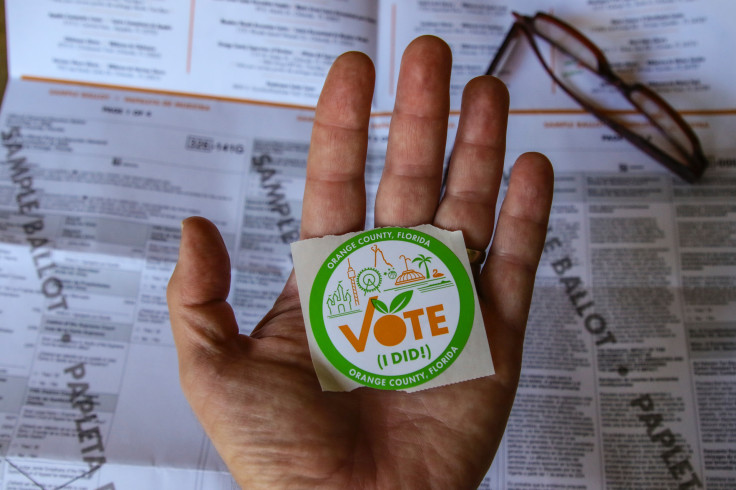
Joe Biden and Donald Trump have both got the necessary amount of delegates to clinch their respective presidential nominations at the Democratic and Republican conventions this year, setting the stage for a presidential rematch in November.
Nonetheless, states continue to hold their primaries, fulfilling their legal obligations and helping analysts and pundits get a clearer picture of the electoral landscape based on voters' behavior at the poll.
Florida, one of the state with heaviest Latino presence in the country, is next in line. In that context, the National Association of Latino Elected and Appointed Officials (NALEO) published a profile of voters in the state, describing not only their influence in the final result but also how their priorities have shifted throughout the years.
NALEO expects more than two million Latino voters to cast a ballot in November, a 31% increase compared to 2016 and almost 14% compared to 2020. The figure represents roughly 20% of all voters in the state, but the report says the projection is a floor and that the actual turnout could exceed it.
"Furthermore, one of the factors contributing to Hispanic turnout in Election 2020 was candidate and party investment in Hispanic voter mobilization. This kind of investment will continue to be crucial for the Florida Hispanic vote in Election 2024 to match or exceed the vote of 2020," the report adds.
Looking at party affiliation, the report shows that one third of Latinos side with the Democratic party, the same figure as the rest of the population. 28% consider themselves Republicans (compared to 40% of the state) and the remaining 39% fall into the "other" category (the figure being 27% for the rest of the state).
Republicans have won the state in the past two elections, even though Latinos have mostly supported the Democratic candidate. "According to the Latino Decisions 2016 Election Eve poll, Hispanics supported Clinton over Trump by 67 percent to 31 percent. In contrast, according to CNN exit polling, white voters supported Trump over Clinton by 64 percent to 32 percent," reads a passage of the report.
In 2020, the margin of victory for Trump was larger. While Hispanic voter preferences again appeared to differ from white voter preferences, "Trump also appeared to gain ground with Latino voters from 2016. The Latino Decisions 2020 Election Eve poll showed Hispanics supporting Biden over Trump by 59 percent to 38 percent," the document added.
The presumptive Republican candidate seems to have continued making inroads with Latinos throughout the years leading to the current electoral cycle, at least at a national level. A recent survey conducted by The New York Times and Siena College shows the former president with a six percentage point lead over the current one, 46 to 40% with this demographic.
Looking at the age of Latino registered voters in Florida, the report shows that they tend to be "somewhat younger" than the rest, with 18-24 year-olds comprising 11% of registered Latinos, compared to seven percent of non-Latinos.
"Similarly, 18 percent of Hispanic registered voters are 25–34-year-olds, compared to 13 percent of non-Hispanics. In contrast, 59 percent of non-Hispanic registered voters are 50 and older, compared to 46 percent of Hispanics," the report adds.
Looking at the priorities of Florida's Latino voters, the NALEO study claims that they have evolved with every election cycle. In 2018, "economic opportunity, immigration reform, and access to affordable healthcare were the most important issues," but since then there has been a shift.
During the pandemic era, more than half of Latinos said that responding to Covid-19 was "one of the most important issues they wanted the next president to address," with racism and discrimination, lowering healthcare costs and improving employment opportunities also ranking.
In 2022, in turn, NALEO's weekly tracking poll showed that 54% of Florida Latinos named the rising cost of living as one of the most important issues, with "improving wages and employment opportunities, women's reproductive and abortion rights and lowering the cost of health care ranking higher than protecting immigrant rights."
However, the landscape has shifted in the past years, with immigration-related issues gaining significant prominence. The report lists a series of issues such as the enactment of "SB 1718, which makes transporting undocumented immigrants into Florida a state felony, and prohibits undocumented immigrants with out-of-state driver's licenses issued without proof of "lawful presence" from driving in the state, amongst other measures."
"It is unclear how issues like inflation, global instability, or the public policy debate around immigration issues will play a role in mobilizing the Florida Hispanic electorate," the study concludes.
© 2025 Latin Times. All rights reserved. Do not reproduce without permission.





